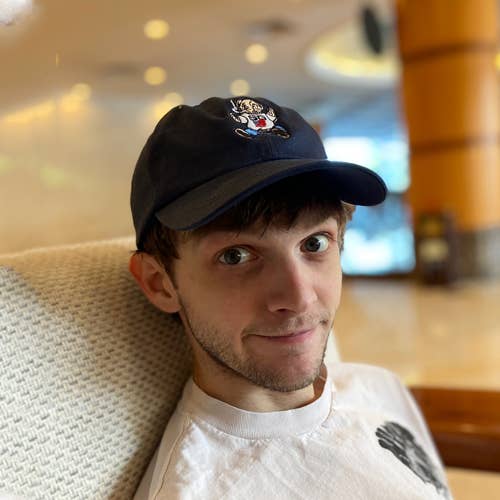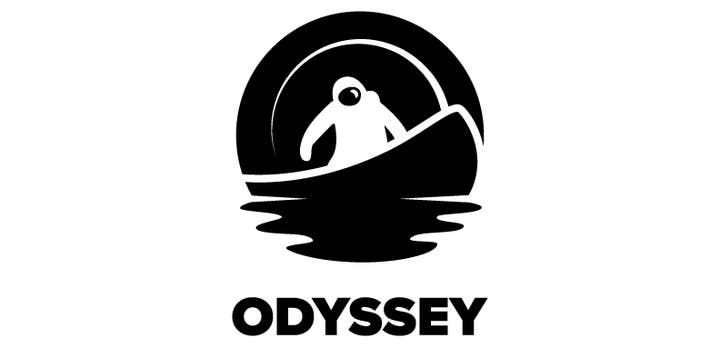Odyssey Interactive raises $6m to make impactful games for a new generation
Co-founders Richard Henkel and Dax Andrus share their vision for a small, Supercell-like team born from their work at Riot on Teamfight Tactics
The seed of the idea for newly-formed mobile studio Odyssey Interactive was planted when CEO Richard Henkel and president Dax Andrus were working on Teamfight Tactics at Riot Games.
The then-co-product leads were, as Henkel puts it in a conversation with GamesIndustry.biz, "cordoned off in a corner of the building behind a bunch of whiteboards," which gave them the tight-knit feeling of a smaller team within a much larger infrastructure. At the time, Henkel says they often imagined how cool it would be to replicate this kind of feeling in a studio of their own.
Henkel departed Riot Games to move home to Canada in preparation for the birth of his third child, but as he reckoned with the fact that there were no studios like Riot Games in his neck of the woods, he became serious about forming one of his own. He brought in Andrus, as well as fellow ex-Rioters Eric Lawless as CTO and David Capurro as CCO to form Odyssey Interactive.
"For us being able to set up in a studio where even people fresh out of school can live comfortably was something that was pretty appealing"
Richard Henkel
Odyssey Interactive began fundraising around February of this year, and just finished raising $6 million in seed funding from Andreessen Horowitz, Golden Ventures, the A16z Cultural Leadership Fund, and angel investors including Discord CMO Eros Resmini, Twitch co-founder Kevin Lin, YouTube co-founder Steve Chen, and former Blizzard vice president Paul Della Bitta. The team is using the funding to start up its studio in Kitchener-Waterloo, Ontario, just about an hour west of Toronto.
"We were debating pretty heavily, 'Do we do Toronto or do we do Kitchener-Waterloo or something in the area?'" says Henkel. "And ultimately, we settled on KW because it's a tech hotspot for the Canadian ecosystem. It's a place that allows us to offer a pretty stable quality of life with a low cost of living for people within the games industry, which was appealing to us.
"When people are junior in the industry, I think it's quite common that the salaries that are commanded don't necessarily afford the same stability of [being able to afford a place to live] and not being super stressed about money. So for us being able to set up in a studio where even people fresh out of school can live comfortably was something that was pretty appealing, while also not having to give up on the potential to bring in high-quality talent because again -- it's a tech hotspot."

In addition to the low cost of living and the conveniently local Blackberry headquarters, Kitchener-Waterloo also happens to include the University of Waterloo, which Henkel says will be key for the studio's goals of recruiting a lot of young, up-and-coming talent.
"We're a little worried that, as we get older, we start to forget what people actually want," he says. "And we'll just build the games that we think are cool. And you ship it, and then people are like, 'Yeah, I'm not about that.' So by building a company around that young energy, we can build games that ideally stay current with what players actually want today and tomorrow."
Despite professing goals of creating experiences like they had at Riot Games, Henkel says the studio doesn't want to get too big. By the end of year two, he projects they want to be at around 20 people, and while they may keep growing from there, they don't want to move too fast.
"I think our general strategy has been to try to build a company a lot more like a Supercell than a Riot or Blizzard or a larger studio," Henkel says. "And this is pretty grounded in a lot of our experiences working on Teamfight Tactics, where it was a smaller team. The agility that you're afforded when you have a small team, and the alignment conversations that need to happen, are faster because it's a smaller group of people who bought into the same idea, the same vision. We want to try to emulate that as a studio ideally across several teams."
"If we had taken a year, two years, whatever to really polish and try to make the thing perfect, we probably would have missed the opportunity"
Dax Andrus
The team is also looking to Supercell for how it will consider game development and release cycles. Though Odyssey Interactive is starting by working on only one game, it's planning to gradually spin up multiple small, internal teams to enable it to work on multiple titles at once. Ideally, Odyssey wants to get to a point where it is shipping something new every year to year and a half.
"That was something particularly we learned on Team Fight Tactics," Andrus says. "From deciding that game was going to get made to shipping was like four months. And I think if we had taken a year, two years, whatever to really polish and try to make the thing perfect, we probably would have missed the opportunity. The market would have moved away from the auto-battler genre. But I think we were able to come in and make the market for the genre by hitting at the right time and moving fast.
"So we want to continuously be churning through a set of ideas and asking, 'Is this fun? Is this where we think like this genre could go? Is this a new genre that could emerge?' I think the only real way to do that is to move quickly and validate with players rather than sit on your ideas for years and polish and hope that conditions are still the same as when you started making the game a couple years beyond that point."
Odyssey Interactive is still a very new studio, so it doesn't yet have much to announce in terms of what kinds of games it's making. It's focused on mobile games, which Andrus says is because the studio wants to specifically target the "next generation of gamers" -- a generation which increasingly uses a centralized device that's the focal point of all its social play. In other words, everyone has phones, and more and more young people are both gaming and communicating with friends simultaneously on them.

Henkel adds that mobile has been a driving force in Eastern markets for a long time, and while the West is starting to catch up, so far a huge chunk of the big mobile games in the West are transplants from console: including Fortnite, Call of Duty, and PlayerUnknown's Battlegrounds.
"We want to try to build games with the depth of the PC game, but designed around the constraints of mobile first, and then maybe bring them to PC or console down the road," he says. "Just because the constraints on a phone are that you've got two thumbs, so there's a lot of limitation to how you can deliver really deep, quality gameplay. Also just networking and ping -- if you don't think about that stuff, all of your design decisions will come to bite you in the butt later when you're trying to bring it to mobile. And we don't want that audience of new gamers to feel like they're playing second fiddle to other platforms."
"It's so easy as a developer to lose yourself looking at your computer screen and forget about the life of the players on the other end who are being helped through dark times by games"
Richard Henkel
As for what kind of games we can expect from Odyssey, Andrus describes one overarching principle for the studio's titles: "Games you live." To them, this means three things: the first is that the game has a purpose and gives a feeling of growth or fulfillment -- it's not just mindless entertainment. The second is that it attracts a vibrant community with lots of discussions and social interaction. And the third is that its games have longevity. Andrus says the founders were spoiled by working on League of Legends, and they want to make games that have "deep mastery loops" and have the potential to last for a decade or more.
Henkel illustrates that further at the conclusion of our discussion with a personal story in response to me asking him what success would look like for Odyssey Interactive, say, five years down the road.
"This was in Las Vegas, Mandalay Bay," he says. "LCS finals between CLG and TSM. I'm reffing. I'm sitting in the back hallway with CLG. And Xmithie's sitting kind of bent over, looking nervous and Aphromoo, who's the support at the time, was like, 'Dude, it's fine. We've been training our whole lives for this.' And it was this moment of realization for me that this is a game that I've been putting myself into, at that point, I think for seven years. And getting to this moment to them wasn't just like, 'Oh, yeah, all the practice we put in for League of Legends.' It was all the games they played growing up, all the skills that they learned about teamwork and collaboration and theory-crafting that went into this.
"And we walked out onto the stage. And they sat down for game five and the crowd around us was erupting. And I just looked around. That was the moment that it really dawned on me just how much of an impact games can have on people...it's this feeling of being in a stadium surrounded by people who all love this game. We're cheering for the same things. That's the type of game that we hope we can make.
"It's so easy as a developer to lose yourself looking at your computer screen all day and forget about the life of the players on the other end of it who are making meaningful friendships, or building lifelong memories, or being helped through really dark times by games.
"To me, success is building games that have that level of impact. We know it's going to be hard to ship, because games are competitive as all hell. But we hope that by leveraging our experiences as players and the love that we feel for games and the experience we had working on League of Legends and Teamfight Tactics, we can hopefully make games like that for that next generation that's coming into their own on mobile."

